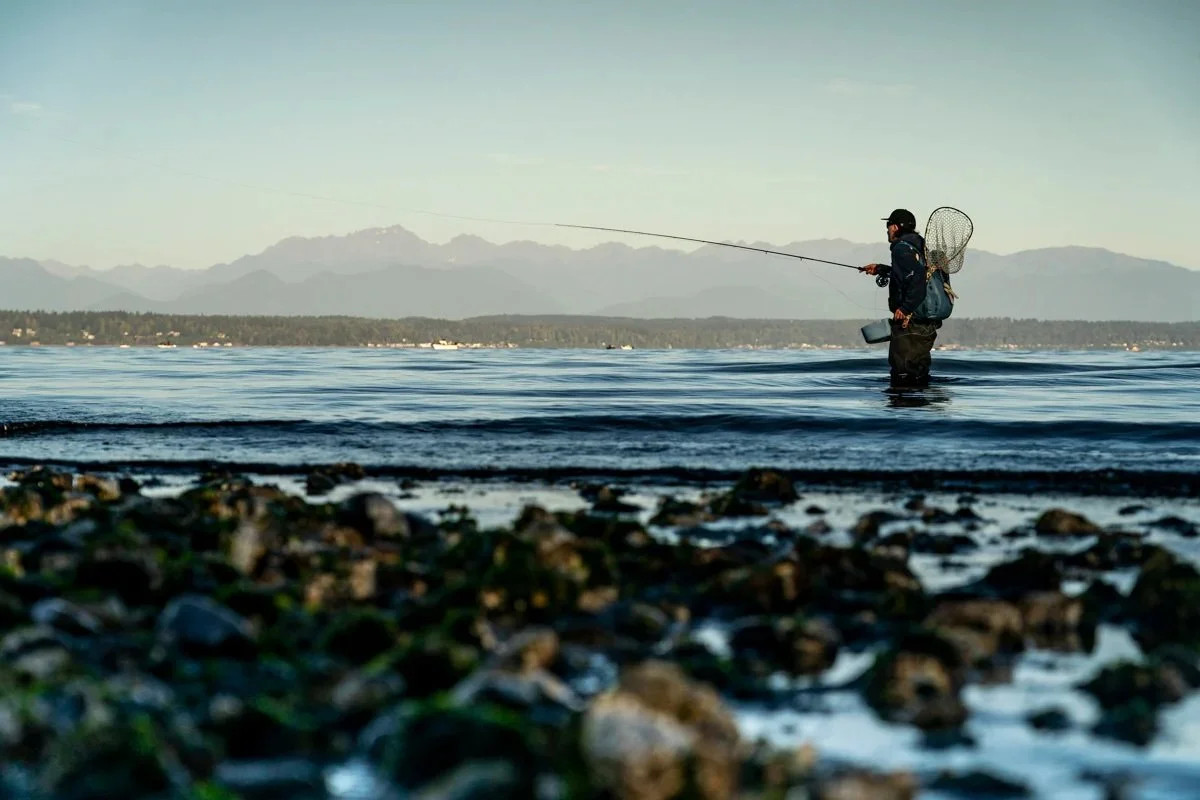Photo: Matt DeLorme
As a lifelong angler and owner of Emerald Water Anglers, I have witnessed firsthand the impact of climate change on our fisheries here in Puget Sound and across the globe. As the world's first climate-neutral fly shop, I have also seen how sustainable business practices help my business and improve customer loyalty.
Preserving and managing our fisheries has emerged as a frontline concern in the battle against climate change. Senators Patty Murray and Maria Cantwell have shown commendable leadership in addressing the pressing need for climate-resilient fisheries, an effort that deserves both recognition and reinforcement.
Recreational fishing isn't just a pastime. For many coastal communities, it's an essential economic driver. Yet, this industry, so intertwined with our local economies and culture, depends on two vital elements: abundant fish and well-managed fisheries.
To this end, the National Oceanic and Atmospheric Administration's National Marine Fisheries Service (commonly called NOAA Fisheries) plays a critical role. Tasked with the dual mission of producing fisheries science and implementing sustainable management, NOAA Fisheries is a crucial cog in the wheel of fish stock health and conservation. Its functions range from producing high-quality stock assessments to ensuring sustainable management and protecting and restoring fish habitats.
Investing in NOAA Fisheries' science and management capabilities isn't simply about protecting our natural resources—it's an investment that will yield considerable dividends for recreational fishermen and fishing businesses alike. We should view every dollar invested in NOAA Fisheries as an investment in our coastal communities' sustainability and future prosperity.
However, as we've been repeatedly reminded, good intentions aren't enough. We need action—and that action needs funding.
While NOAA Fisheries and the Fishery Management Councils tasked with managing federal fisheries have established a solid foundation for climate action, we now stand at a critical juncture. More is needed to maintain the progress we’ve made towards healthy fisheries. Now is the time to expand and accelerate these efforts to address the compounding climate impacts on our fisheries.
And yet, the path forward requires more than drive and determination. It demands substantial funding across NOAA Fisheries' core programs to meet these challenges head-on.
Senators Murray and Cantwell have long been strong champions for NOAA, particularly for the agency's role in supporting sustainable fisheries management in the state of Washington and nationwide. Now, there’s more work to be done, and we once again need them to continue their leadership in securing strong funding for climate-resilient fisheries.
The proposed House FY25 Commerce-Justice-Science Appropriations bill covering NOAA Fisheries would make steep cuts and include language that would prevent funding research on climate change impacts on fisheries. The Senate has a crucial role in ensuring these damaging proposals don’t move forward in any negotiated funding package with their House counterparts.
However, the responsibility does not rest solely on their shoulders. It's a collective battle that needs our shared effort and commitment.
As we thank Senators Murray and Cantwell, let's join them in their push for increased funding and bolstered climate adaptation efforts. Let's work to ensure that our recreational fishing industry survives and thrives, remaining a vital part of our coastal communities' economic and cultural fabric in a future where climate resilience is not an option but a necessity.
Dave McCoy was introduced to fly fishing at the ripe age of 3 by his father and has dedicated his professional life to the fly fishing industry. He has spent the last 20+ years relentlessly trying to surpass expectations as a guide, outfitter owner, conservationist, and fly fishing ambassador.

